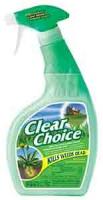Weed Control
For A Beautiful Garden
Without Weeds
Weed control is often delayed far too long and results in more work to get things under control.
The problem with weeds is that you never know your lawn has them until there's a vigorous overgrowth that threatens your turf and your plants. Most home owners just don’t pay attention to an innocent, scrawny stem with tiny leaves until it turns into a monster.
And when it does, that's often the time when it's next to impossible to get rid of the weed. If you want to manage and maintain your lawn, learn the effective ways of controlling weeds.
What is a weed?
According to the Merriam-Webster dictionary, a weed is a plant that people don't value and has a tendency to overpower other plants, specifically those we consider desirable.
This is a tricky definition, considering that one man's weed is another man's wild flower. In order to decide whether or not to destroy a certain weed, it's best to ask yourself whether you want it in your garden or not. If the answer is no, then it's time for it to go.
Why you should use weed control
Weeds are notorious for being fast growers, able to outgrow other garden plants. Because they will overpower and probably destroy these plants, we find them annoying, especially since most of them don’t have any apparent use. Furthermore, most weeds don’t have the aesthetic appeal that other plants have.
Is there any reason why I should not be so harsh on weeds?
Weeds do have their advantages because they are the home of countless bug killing insects. In the event that you already have these kinds of insects in your garden your reliance on weed control is going to be significantly less.
Controlling weeds the natural way
There are three different types of weeds, annuals, biennals and perennials. The perennial weed is one of a number of weeds that come back throughout the seasons and frequently produce seeds year after year. Weeds that fall into this category include milkweed and dandelions.
Biennial weeds are the kind that survives for two years. During the previous year they flower and develop seeds. Then there are the annual weeds, which include chickweed, thistles and crabgrass. These have a yearly life-cycle but in contrast to perennial weeds, they are much easier to deal with.
If you don't wish to use chemicals as a form of weed control in your garden, and if the weeds in your lawn remain manageable, make an effort to control their development by just uprooting them.
The most effective method to achieve this is to cultivate the soil by breaking down the surface. This aerates the soil and makes it soft, so that weeds are easier to remove. The best time to do this is when the weeds are still in their early stages of growth. This will help to to ensure seeds are not so easily propagated and allowed to spread. This task should be carried out frequently to make certain that any growth within a season is restricted.
An old garden practice called mulching is also an effective way to keep weeds under control. This method helps to control weeds by utilizing a layer of materials such as leaves, bark, grass clippings as well as other organic matter, and dispersing the mixture over the lawn.
This helps to keep soil rich and healthy and keeps the sun's rays from reaching the weeds which prevents then from seeding themselves.
Should you use these natural ways of weed control, you will need to be attentive and patient. Pulling out leaves and stopping seeds from germinating doesn't guarantee you won't have weeds. Having said that, you can controll them sufficiently well until they are either minimized or eliminated all together.
Weed Killer...
Clear Choice Weed Killer is a lawn-friendly option for weed control. This eco-friendly weed killer starts off with a unique microtechnology manufacturing process, so significantly less active ingredients are necessary to destroy unwanted weeds.
It will kill upwards of 60 weeds right down to the root, including plantains, dandelions, oxalis, spurge, kudzu, chickweed, poison ivy, mustards, field bindweed, pigweed and a good many more.
Being a selective herbicide, it will destroy only the weed, not your lawn. (A non-selective herbicide kills everything, weeds, grass and basically everything green.)
Using herbicides
Weeds are tough and flexible. In fact, there is no all-in-one weed killing product on the market today that is capable of destroying all kinds of weeds. If you want an effective way of controlling them, first learn how to recognize them. If you know which weeds are found in your lawn, you'll be able to find the right product to use.
There are two kinds of herbicides, the systemic type and the contact type. The systemic herbicide is absorbed by the weeds through the leaves and the root system. These kill the weeds from the inside out. Contact herbicides, as their name implies, kill from the outside in. They prevent the weeds from using photosynthesis to survive.
Both these herbicides come as either selective or nonselective varieties. Selective herbicides are those that are chemically capable of killing only certain weeds without affecting other plants in your lawn. Nonselectives, however, will kill regardless of what they come in contact with.
The best way to use these chemicals for controlling weeds is to follow the manufacturer's directions carefully. This is also the safest method, considering that much of the failure (and danger) associated with the use of herbicides is due to inaccurate or incorrect application.
Use during early spring in order to attack weeds when they are at their weakest.
Gardening Tools › Lawn Care › Weed Control









New! Comments
Have your say about what you just read! Leave me a comment in the box below.